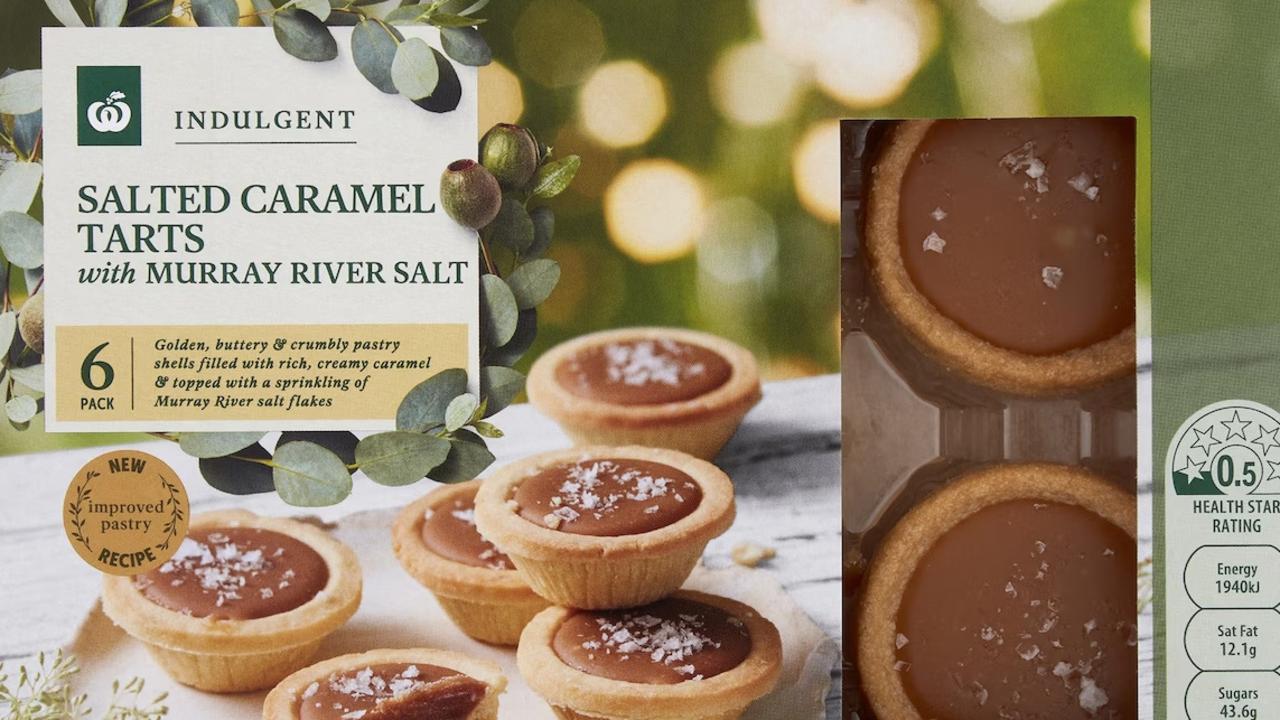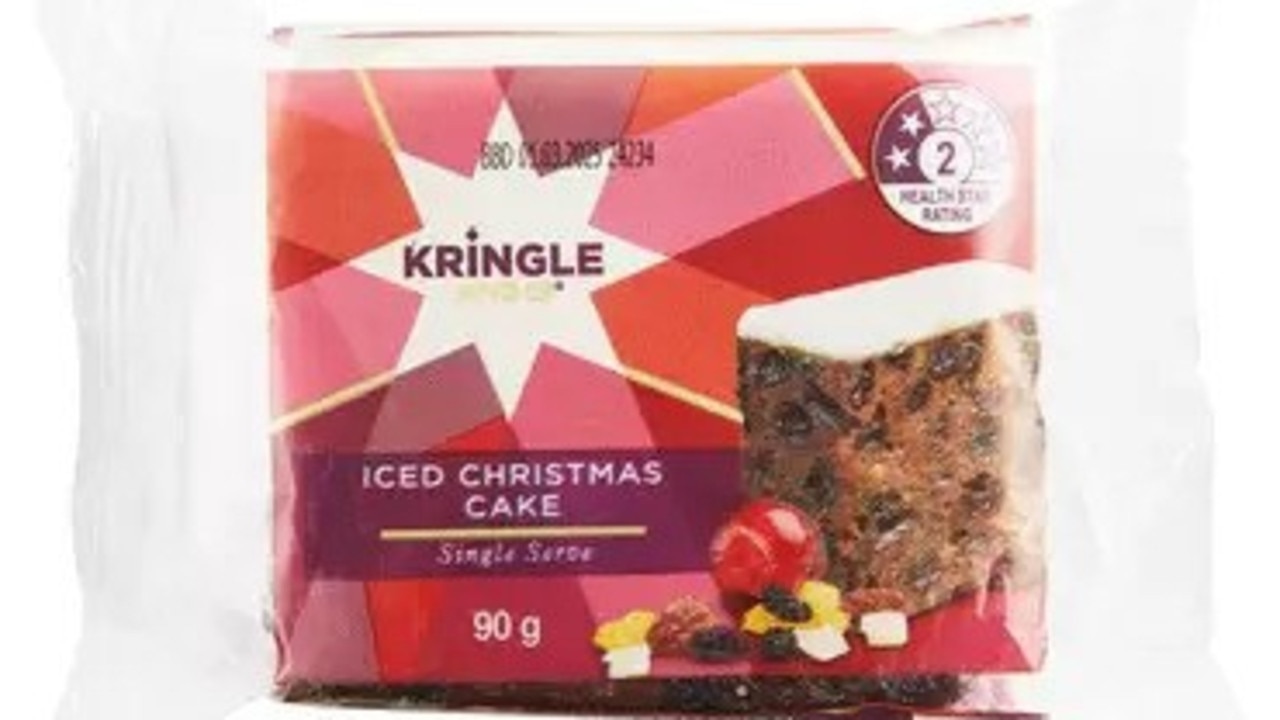Festive treats were bigger and cheaper last year, new report finds
At least five different products from Woolworths, Aldi and Lindt have become the latest casualties in the ‘shrinkflation epidemic’ plaguing Aussie shoppers.
Some favourite Aussie Christmas treats have suffered the curse of shrinkflation.
In its new ‘shrinkflation’ analysis, consumer group CHOICE has revealed five popular Christmas products that are smaller and more expensive then they were just last year.
“This is the last thing people want when they set out to stock their pantries for Christmas, particularly during a cost of living crisis,” CHOICE journalist Liam Kennedy said.
Among the products affected at Woolworths are its Rocky Road and Salted Caramel tarts, which were sold in 240g and 210g varieties for $7.50. Just 12 months later, customers are being slugged $8 for a much smaller 180g portion.
The revelation comes as 87 per cent of households are worried about how much they’re spending at the supermarket, with many already asking sacrifices this Christmas.

Likewise, Lindt chocolates were also exposed for shrinkflation, with the report finding the company’s Christmas Medley Bag shrunk from 414g in November last year to 390g this year.
While the products price didn’t change, the same cannot be said for Lindt’s Champagne gala box, which despite downsizing by 37g, will now set customers back an extra $2.

Despite its reputation as the thriftiest Aussie supermarket, Aldi too was exposed in the report.
CHOICE found that its Kringle & Co single serving of iced Christmas cake has decreased in size from 100g to 90g and increased in price to $2.39 – up from the old price of $2.29.

The price squeeze comes after the government proposed a new plan to combat shrinkflation in October with the announcement of future changes to the Unit Pricing Code in October.
CHOICE has welcomed the government’s shrinkflation plan, but says further action is needed to ensure consumers are aware of products affected by shrinkflation.
“Many supporters have shared with us their frustration around the ongoing presence of shrinkflation in supermarkets,” Mr Kennedy said.
“Consumers deserve better visibility when a product has shrunk in size, but its price has stayed the same or increased.
“Placing labels on shelves to notify people when this happens would help everyone make better-informed decisions while shopping.”






